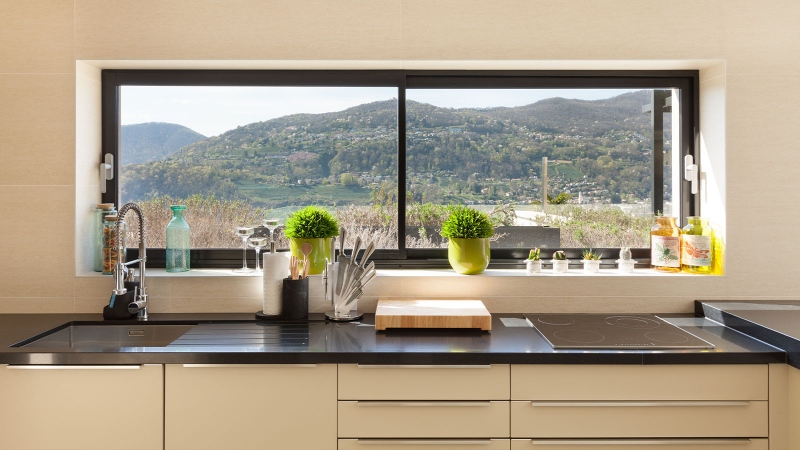
Sustainability in the kitchen
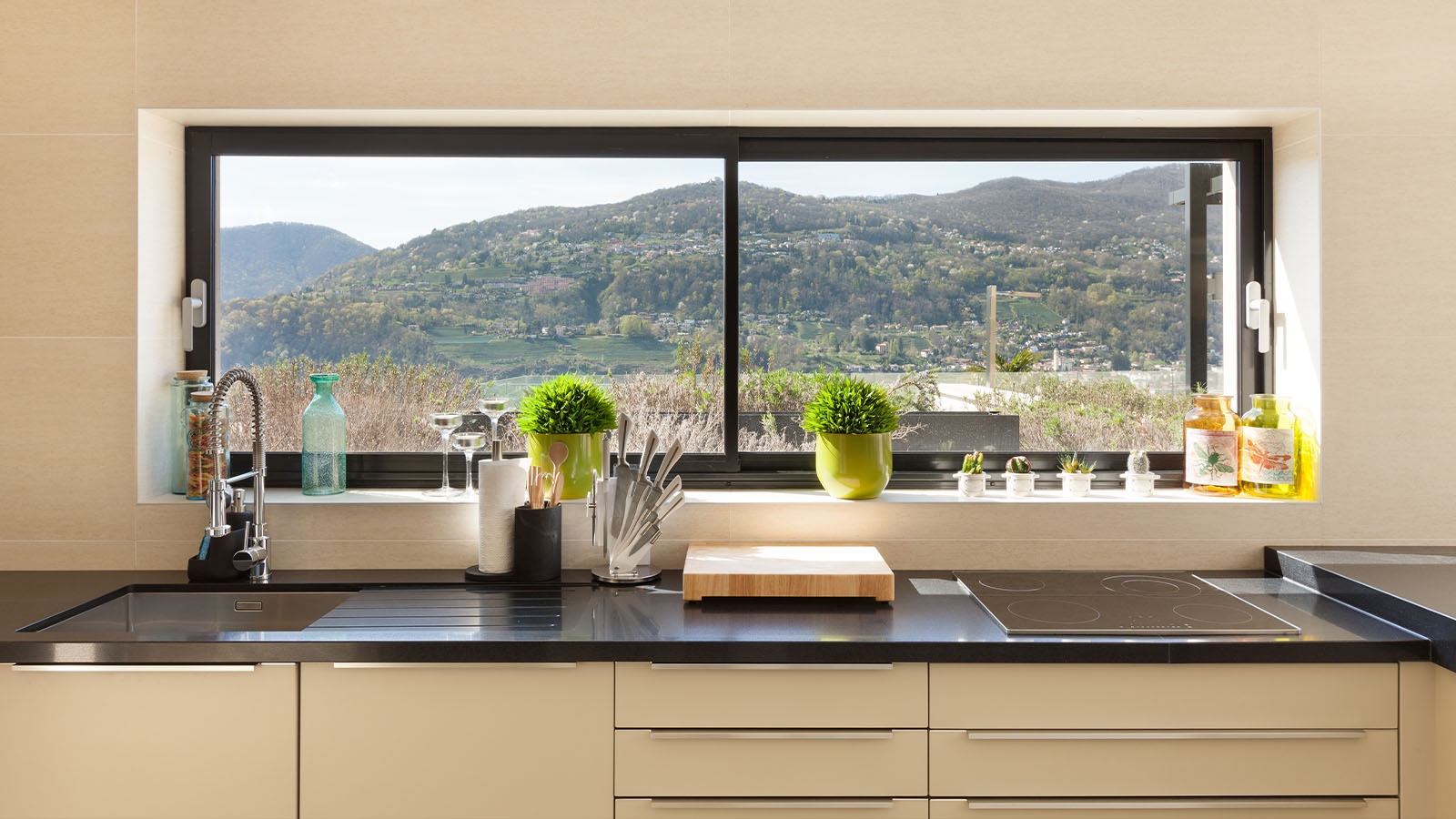
The growing demand for green and sustainable solutions in interior design in the years 2020/21 will bring about a number of stylish, quality design ideas with a reduced toll on the environment. The aim to reduce our carbon footprint in homes of the future results in a renewed interest in more and more products made of recycled materials. This, in turn, will inspire designers to come up with a number of exciting and innovative ideas for unusual material use. There have already been a number of attempts at recycling old materials and products that are deemed “old” and not worthy of further use - these serve the perfect basis for new ideas and design solutions.
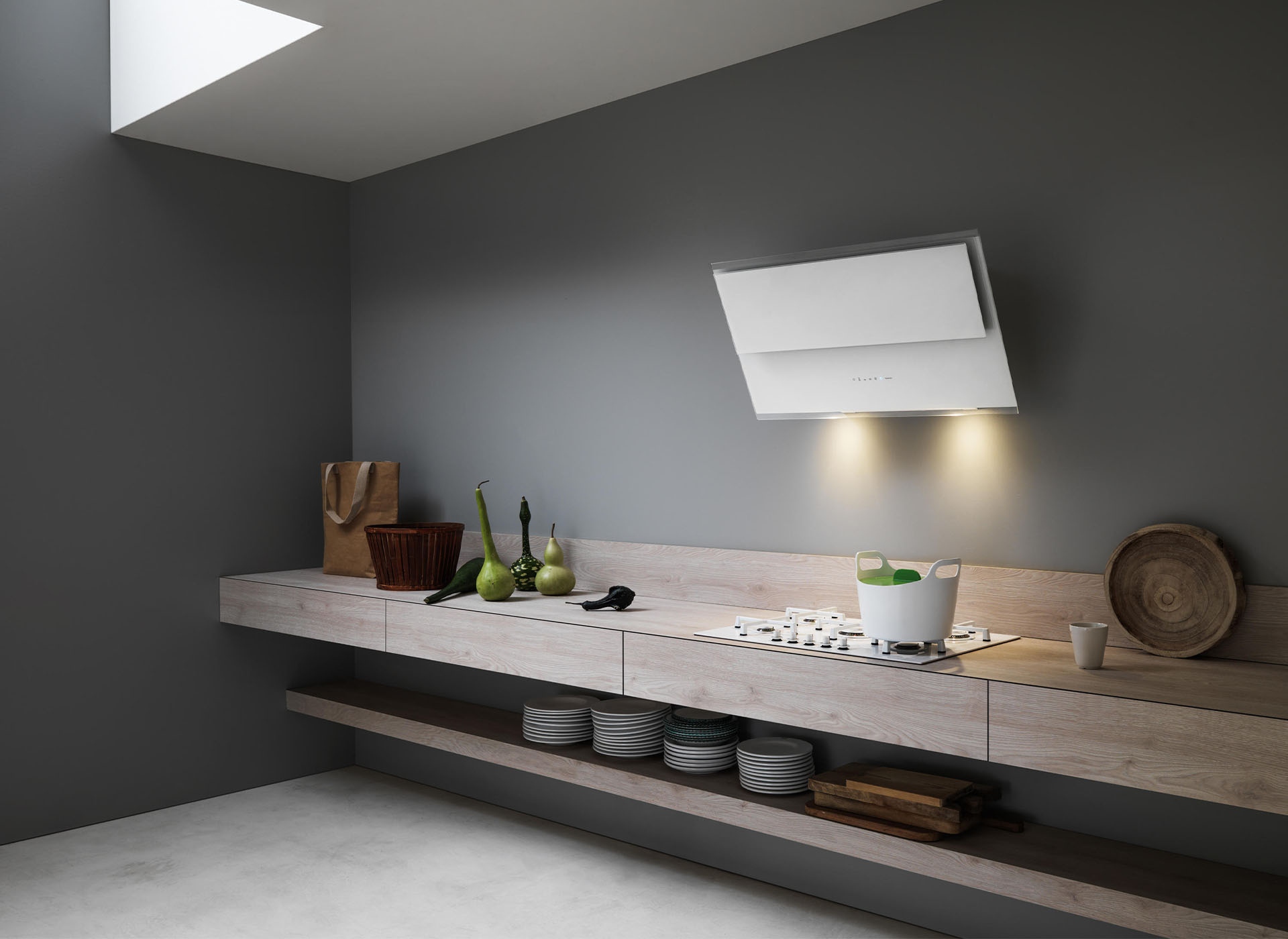
Thinking smart for a sustainable future
The zero waste movement is definitely one of the main inspirations for innovation in the field of kitchen equipment design. Going for energy-efficient appliances is one of the basic things you can do for a sustainable kitchen. Furthermore, smart functions aimed at reduced energy use are synonymous with reduced detrimental effects on the environment. Smart refrigerators, for example, can contribute to extending the shelf life of food and ingredients, helping you reduce your food waste. Material choice should be a responsible decision as well. If renewable resources are unavailable, aim for recycled or recyclable materials.
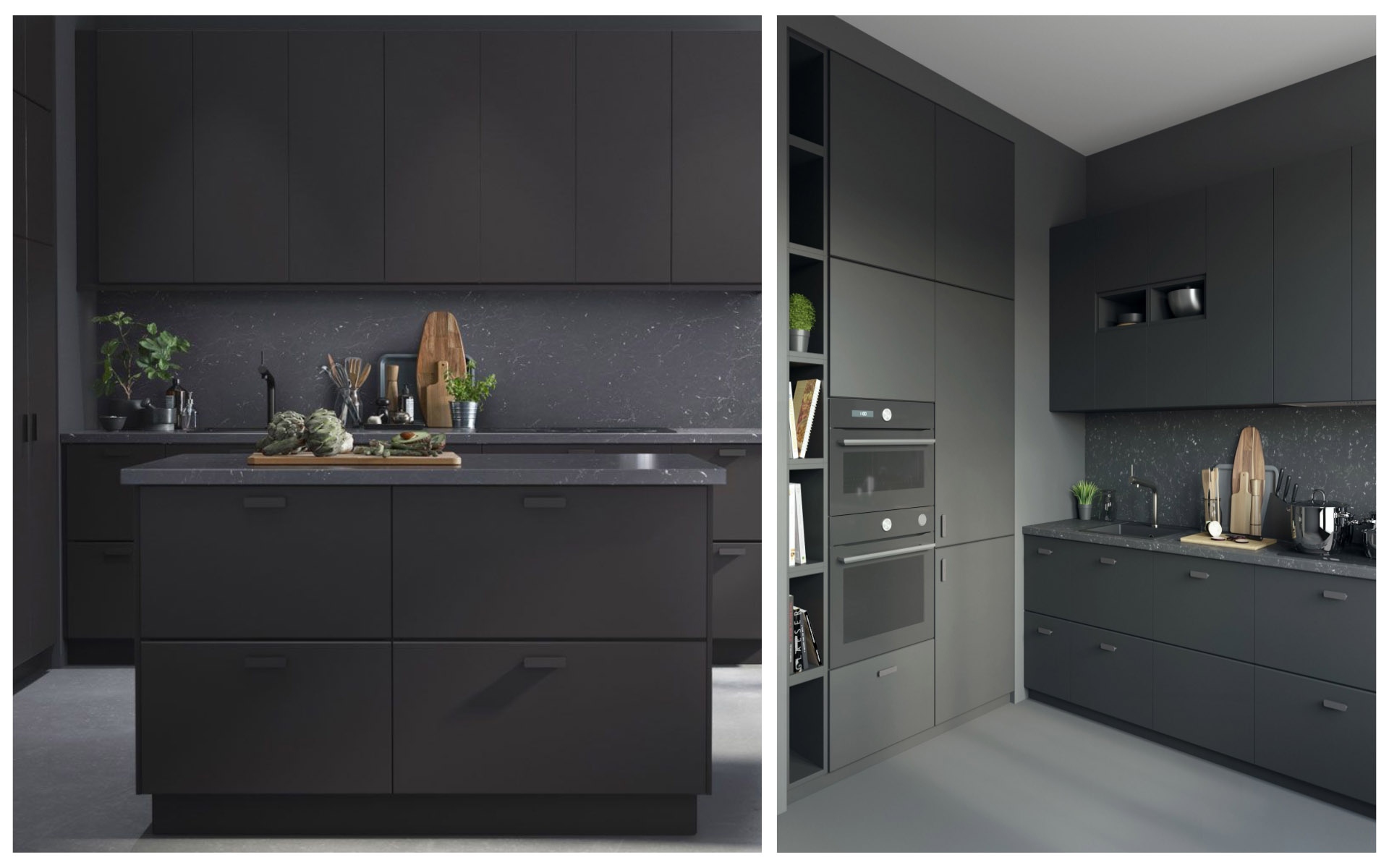
Natural sources
The search for materials of natural origin influence the latest trends in color and material use in the kitchen. Seagrass, bamboo or maize have all turned up in modern furniture design and decoration already. The growing popularity of natural fibers saw the appearance of cork, banana fiber and rattan in kitchen design. These materials are not only renewable and natural, but can easily put a unique twist on your kitchen. The most important pursuit of manufacturers and designers is the abolishment of plastic from homes - while also putting an emphasis on recyclable materials and solutions. Recent years saw a number of inspirational and exciting design ideas where reusing old materials resulted in stylish and practical furniture design. Dirk van der Kooij collects CDs and the plastic waste of refrigerators to fuse them into brand new, spectacular pieces of furniture. And while we’re at it, we have to mention the famous kitchen design of IKEA made of recycled PET bottles.
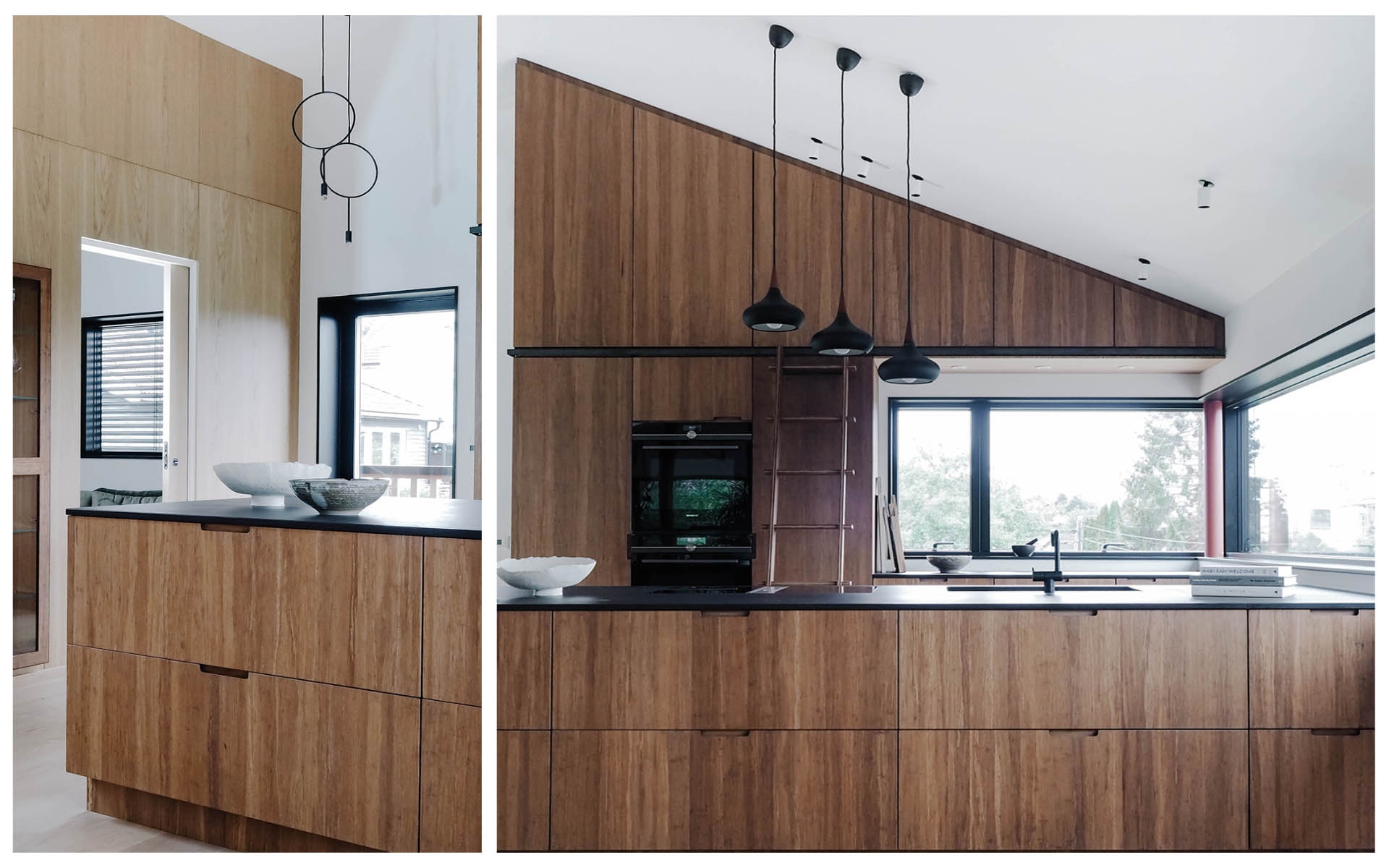
Recycled wood surfaces can make for a beautiful, environmentally friendly and sustainable design for your kitchen. Wood surfaces are very easy to keep fresh and new; with different surface treatments you can always keep it lively, and they can be very easily paired with different surfaces, materials and textures.
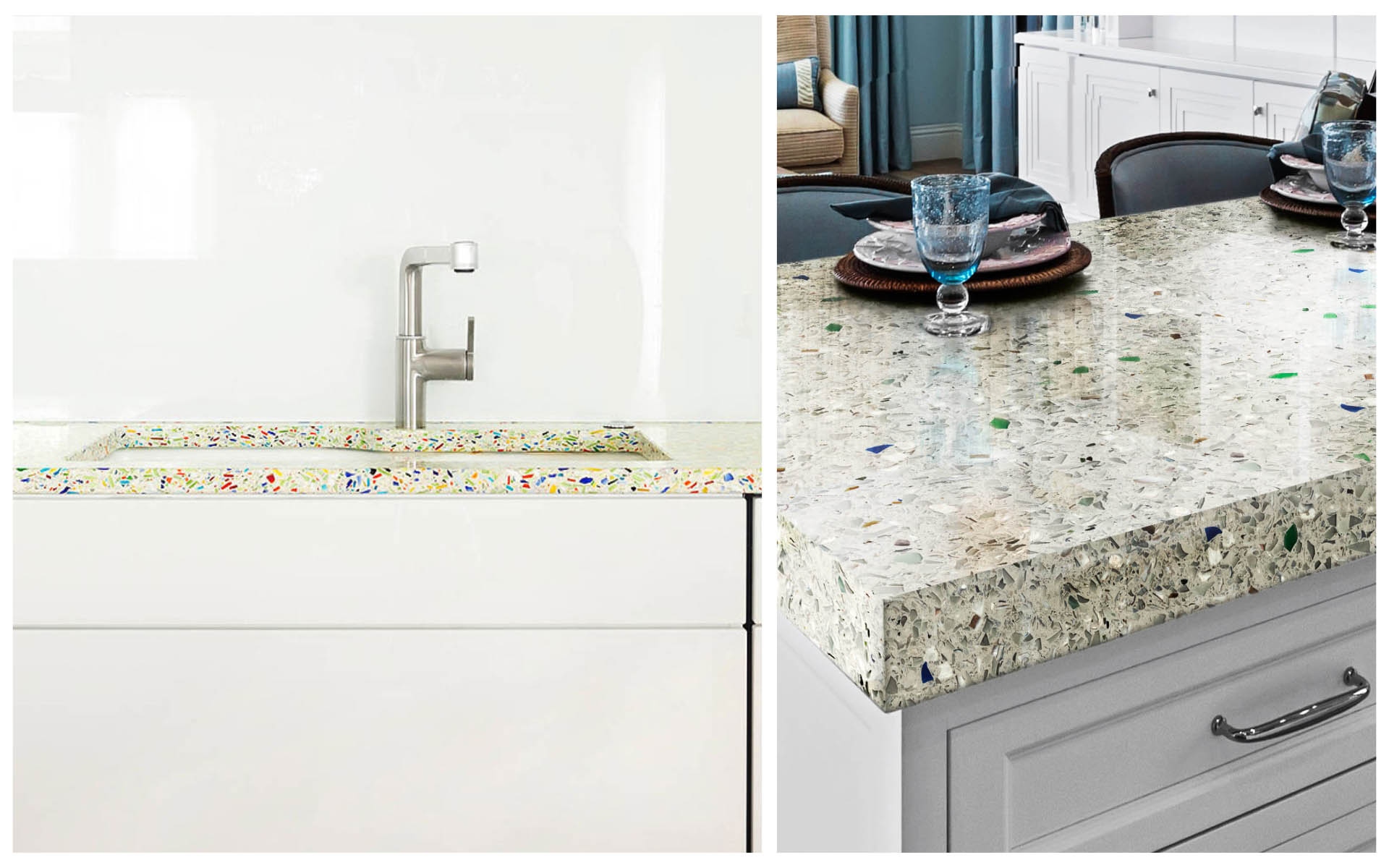
The second life of glass
Worktops and countertops made of recycled glass uses glass waste - including colored glass and even windows glass. Pieces of glass are cleaned, labels and related materials are removed in the process and then they’re crushed into smaller pieces. Then, with the help of cement or other binding agents a special, polished surface is achieved, which will surely become the highlight of your kitchen.
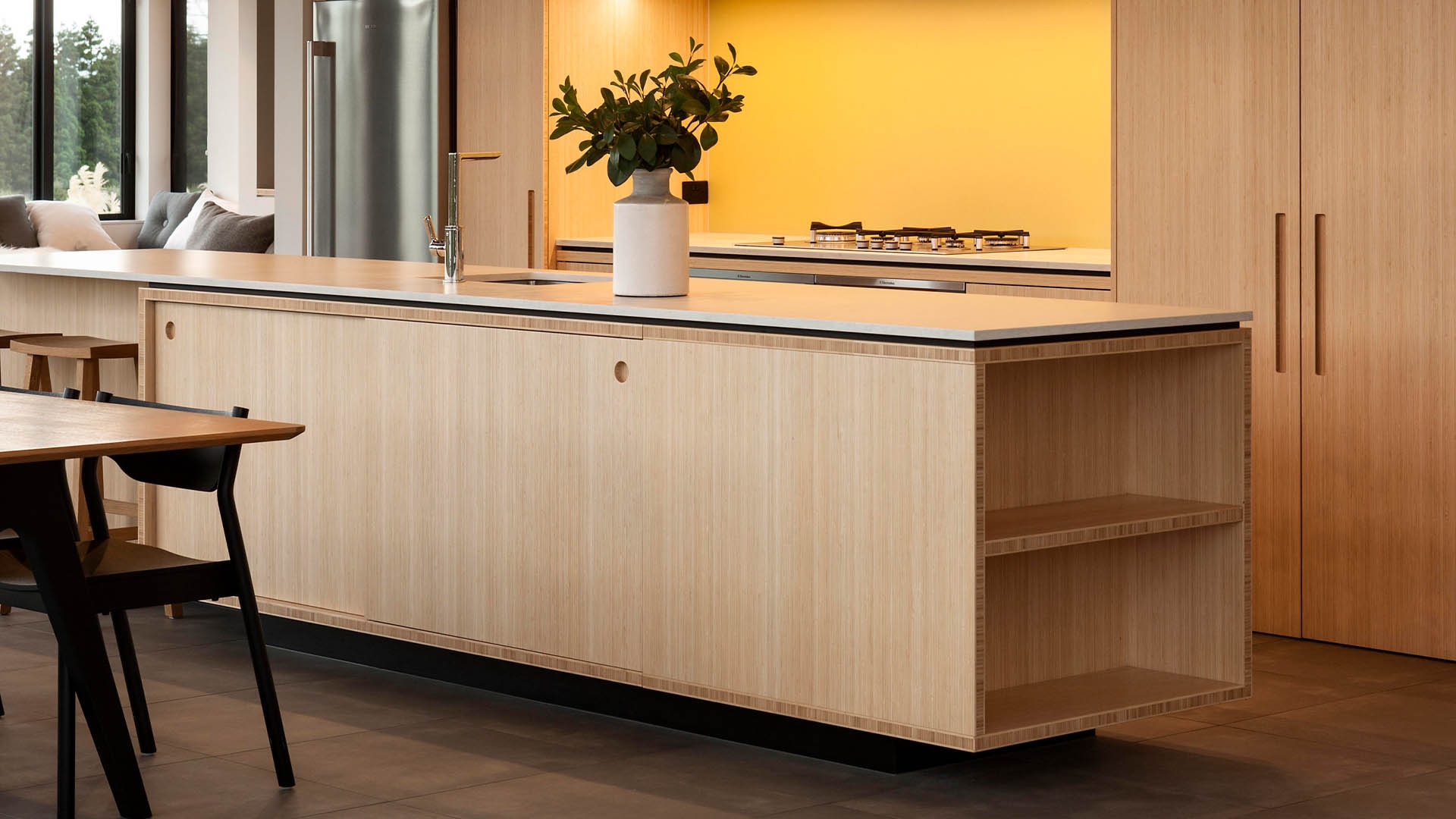
Versatile bamboo
Bamboo is one of the fastest growing plants that is also a durable, hard and water-resistant materia. It is an excellent alternative to plastic as it is just as strong, while it’s also easy to shape and can stay with you for a very long time. And even after a bamboo product expires, it gets back into the natural cycle without leaving any waste behind it. As it is quite resistant to scratches and wear, bamboo can make a great worktop. Because of its layered structure, the life of a bamboo product can be extended by polishing it every once in a while. Bamboo surfaces can also be treated with environmentally friendly oils for extra effect. One of the great things about bamboo is that along with larger kitchen items - such as worktops and surfaces -, a huge number of bamboo accessories are available. This way it will become less of a challenge to create a kitchen interior that is visually and functionally unified.
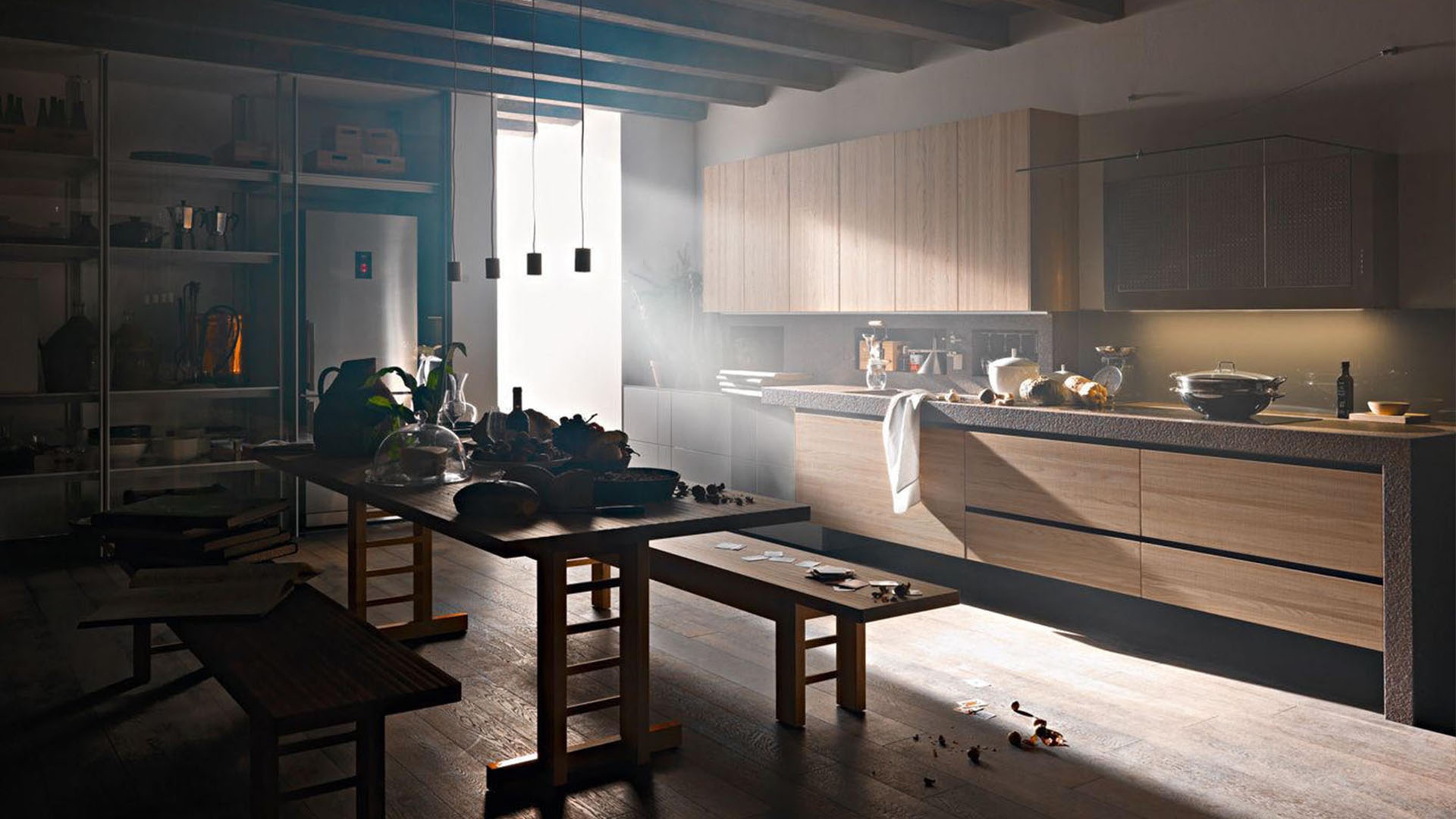
Come to the Budapest Arena between February 28 and March 1 to explore the sustainable kitchens of the future, as well as the fundamental tools of environmental awareness at the Kitchen Show 2020!
Our professional assistant for the article was Zselyke Szendrey.
